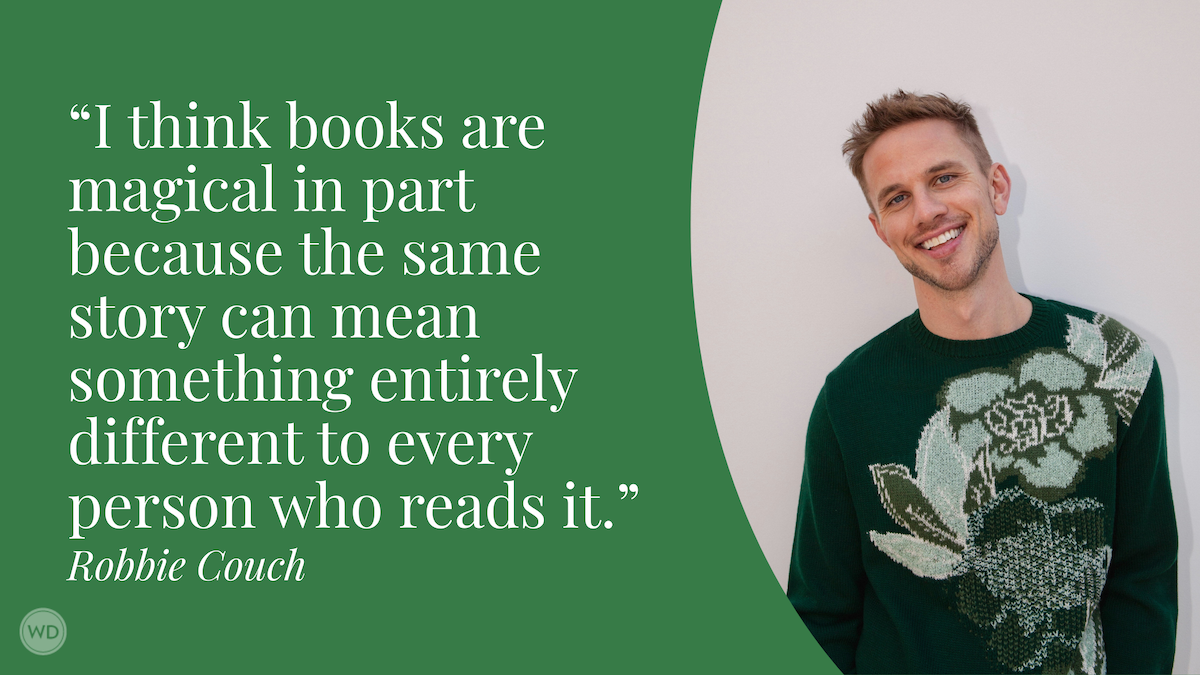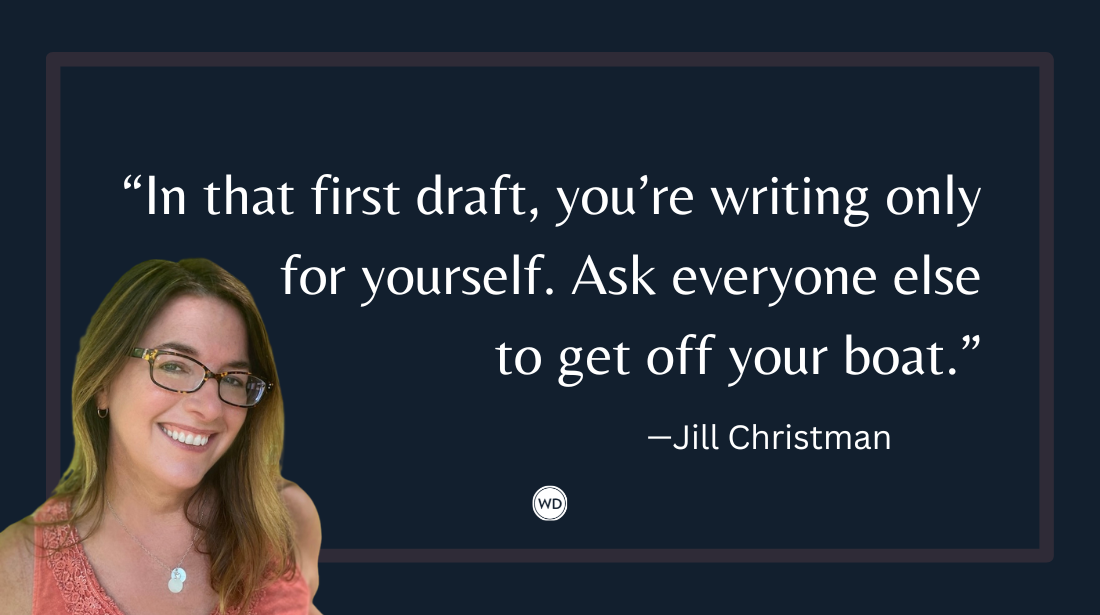Jeff Gomez: From Podcast to Book Publication
In this post, Jeff Gomez shares how a podcast led to book publication of his new title Zeppelin Over Dayton: Guided By Voices Album by Album, what surprised him in the publication process, his best piece of advice for authors, and more.
Jeff Gomez has written numerous books about music and pop culture. A former resident of Manhattan, he now lives in Northern California with his family.
Learn more at dontcallhome.com.
In this post, Gomez shares how a podcast led to publication of his new title Zeppelin Over Dayton: Guided By Voices Album by Album, what surprised him in the publication process, his best piece of advice for authors, and more.
*****
Dive into the world of writing and learn all 12 steps needed to complete a first draft. In this writing workshop you will tackle the steps to writing a book, learn effective writing techniques along the way, and of course, begin writing your first draft.
*****
Name: Jeff Gomez
Book title: Zeppelin Over Dayton: Guided By Voices Album By Album
Publisher: Jawbone Press
Release date: June 16, 2020
Genre: Music
Previous titles: Our Noise; Geniuses of Crack; Print is Dead; Losing Our Edge; Unfamous Men
Elevator pitch for the book: Zeppelin Over Dayton takes an in-depth look at the studio records by indie rock legends Guided By Voices: 32 years, 28 albums, 521 songs.
What prompted you to write this book?
Even though I've been a fan of the band since 1993, I was amazed how—in the past couple of years—the group seemed to get better and better: Their new records were amazing, and their live show (which often clocks in at more than three hours and features about 50 songs) was as loud and energetic as ever. That's not the way things are supposed to be.
Normally, as rock groups age, they rest on their laurels and become—on some level—a nostalgia act peddling the hits (think of The Rolling Stones and The Beach Boys, not to mention other '90s acts like the Pixies or Weezer). This didn't happen to Guided By Voices, and I wanted to find out how that happened.
How long did it take to go from idea to publication?
The book began as a podcast in late 2017. The plan was to, every two weeks, upload an episode of me talking about one of the band's studio records. In each episode, I talked about who played on the album, what was happening in music at the time, and I also went through the record track by track and offered commentary on each song.
I wrote up "scripts" and then recorded myself reading the scripts. After doing this for a few episodes, I realized that what I was writing were really essays. Each essay was about 16 to 20 pages. After doing the math, I knew that—at the end of the podcast—all my essays would add up to a manuscript. I'd have a book on my hands!
And, once I was indeed done with the podcast (I still release new episodes whenever the band puts out a new record, which they'll do in August), I wrote a new introduction and afterward, and incorporated new information I'd come across.
Looking back, it was a fun way to write a book; it felt like an old-fashioned serialization.
Were there any surprises or learning moments in the publishing process for this title?
Something I hadn't at all considered when I was writing the book was any sort of visual accompaniment. My editor at Jawbone, Tom Seabrook—after I turned in the final manuscript—asked me what I thought should be included in the images section. I had to admit I hadn't given it any thought at all.
Jawbone is renowned for producing high quality books about music, and images are a key part of that. But I didn't think just reproducing record covers would have any benefit; all the hardcore fans already know what these LPs look like. But then I figured out a way to add value; I gathered a collection of memorabilia, original source material for the record sleeves, and showcased rare artifacts from the history of the band.
Something that began as an afterthought turned out to be an integral part of the overall package.
Were there any surprises in the writing process for this book?
Listening closely to music I'd been hearing for more than half my life provided many revelations; I discovered things—mainly in the lyrics—I'd never noticed before. It struck me that we often experience music, TV, books, and movies on a quick and instinctual level: We decide first whether or not we like or hate what we came in contact with, but we often don't go a step further and critically analyze what we've just experienced (or why it is that we like it).
This has always been the case but, in a digital world with unlimited content at everyone's fingertips, I think it happens more often than ever; we binge a TV show and, without giving much thought to what we just watched, we binge another.
So it was fun and illuminating to sit with a record and listen to it closely three or four times, really digging into the lyrics and the song structures. Giving it that kind of attention is something I'll now endeavor to do with any piece of art I come into contact with.
What do you hope readers will get out of your book?
I hope readers will not only get a deeper appreciation of this vital and important band (if not maybe just discover them in the first place), but I hope they'll also see that—contrary to Fitzgerald's often quoted maxim—there are indeed second acts in American lives. In fact, many artists—filmmakers, writers, musicians—create really great work late in life.
Steinbeck’s last novel was one of his best, British writer J.G. Ballard wrote good books until his death at age 78 and so even though, as a society, we worship youth, in the arts there's no age limit on being creative or staying culturally relevant.
If you could share one piece of advice with other authors, what would it be?
Write from your passion and not the marketplace; this book began because I liked a band. I never thought it would become a book but, once my podcast won an audience, I saw that it could work as something people would buy and put on a shelf. But that only happened because I was sharing something with the world that I cared about.
This is in contrast to when I was in my twenties and thought I should be writing New Yorker-style fiction; I spent way too much energy trying to be Raymond Carver or John Cheever. Those just weren't strengths I had (and, besides, those books already existed). Because I was wasting my time creating work I had no reason or ability to create, writing was a brutal chore.
But today, when I write about subjects that interest me and which I have a real connection to, it's fun and easy.









